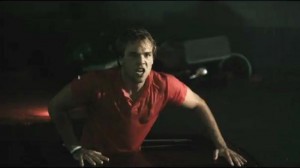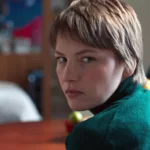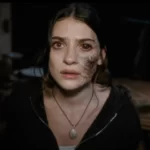Bait 3D has hit our cinemas and the intrepid Danielle Muir set out to talk to the director behind the film, Kimble Rendall, and one of the stars of the picture, Lincoln Lewis.
A How-To Guide for Ruining Supermarket Trips – By Kimble Rendall and Lincoln Lewis
“I always yell out ‘More blood! More guts!’ I’m on a microphone up on a platform going ‘come on you, this is a horror movie!”
Australian’s seem to love making films about various animals eating us in various horrific ways, and director Kimble Rendall is clearly partial to a bit of dismembering. This year’s home-grown blockbuster Bait 3D has burst into cinemas in an outbreak of gore, spontaneous laughter and local actors being feasted upon for our entertainment.
All it took for Rendall and actor Lincoln Lewis to be involved was four simple words – ‘sharks in a supermarket’. The drawing point for Rendall is that he would want to see a film with that exact plot. “It’s a high concept idea for pitching films – sometimes when pitching films the idea goes on for three minutes…their eyes are rolling and falling asleep. I love genre films, I like doing action and for me it was very simple.”
The same goes for Lewis, soon to be seen in new Will Smith film After Earth. “Being able to sit in front of the camera and have an animatronic shark swim around you, and a CGI shark swimming around you, that’s awesome.
The sharks themselves (Derek and Clive as they were affectionately dubbed by Kimble) were brought to life through animatronics, puppetry and CGI – none of the tennis balls on sticks business. And the actors didn’t have to imagine a 12 foot great white swimming around them. Because there actually was one. “Derek is the one upstairs…we have the full length one on rails, running off a hydraulic system. Then we had a half sized shark that we used for close ups.” Lincoln adds – “for the most part, we were acting towards the animatronic shark…so we could see what we were acting against.” A tactic by Rendall to achieve authentic reactions from his cast was to capture the initial shock on camera. “When the shark comes through the water [for the first time] that was the day the actors had seen it. So they were scared.” And it appears to have worked a charm.
Not only was the shark constructed from scratch – the supermarket and car park set acts as another major character, entombing the hapless folk in its interior. After months of construction, the result is visually grand and, like Derek and Clive, added realism to the experience of filming. “They firstly built a giant swimming pool in the studios, pretty much going right over the wall…it was like running an Olympic-sized pool.”
Bait 3D is not a straight-up horror film. The director wants you to laugh. So don’t feel guilty when you get a serious case of the giggles – that’s the point. “Full-on horror going for 90 minutes is intense. It’s great too, but to break it up with comedy, you know, it’s always risky and challenging at times to get the balance right.” And it seems the comedy/horror cocktail isn’t just a hit on our shores. Bait 3D was recently screened at the Venice International Film Festival, to hoards of cheering Italians who are apparently are “so into horror movies, but [are] very vocal, and would vote on the horror with clapping and yelling.”
It was clear our conversation was pointing to one major observation. Australia is experiencing the steps it needs to take towards having a successful mainstream film industry, with Bait 3D representing one of the first significant nudges. Lewis, who starred another nudge, 2010’s Tomorrow Where the War Began firmly believes “there’s nothing wrong about making indie films and our short films and whatnot, and a lot of them are set in the backstreets of maybe Sydney, and that’s fine, but the reason our industry isn’t growing is because we’re not making mainstream films that bring in the audience and viewers…we need to make these kinds of genre films that people can just go to in the groups.” A sentiment then hilariously summed up by Kimble who quipps – “I think funding bodies are going ‘now I don’t want to invest in a story about two people locked inside a bloody raindrop’.”
And there you have it folks. Australia’s film industry is looking more explosive, more expensive and bloodier by the minute. We can still have our raindrops, and our sharks, but Lewis and Rendall seem to be looking for the mass cheers and whoops that tend to elude us, rather than critical acclaim.
Lucky for Rendall, he’s not the only Australian who loves a good dismemberment.




